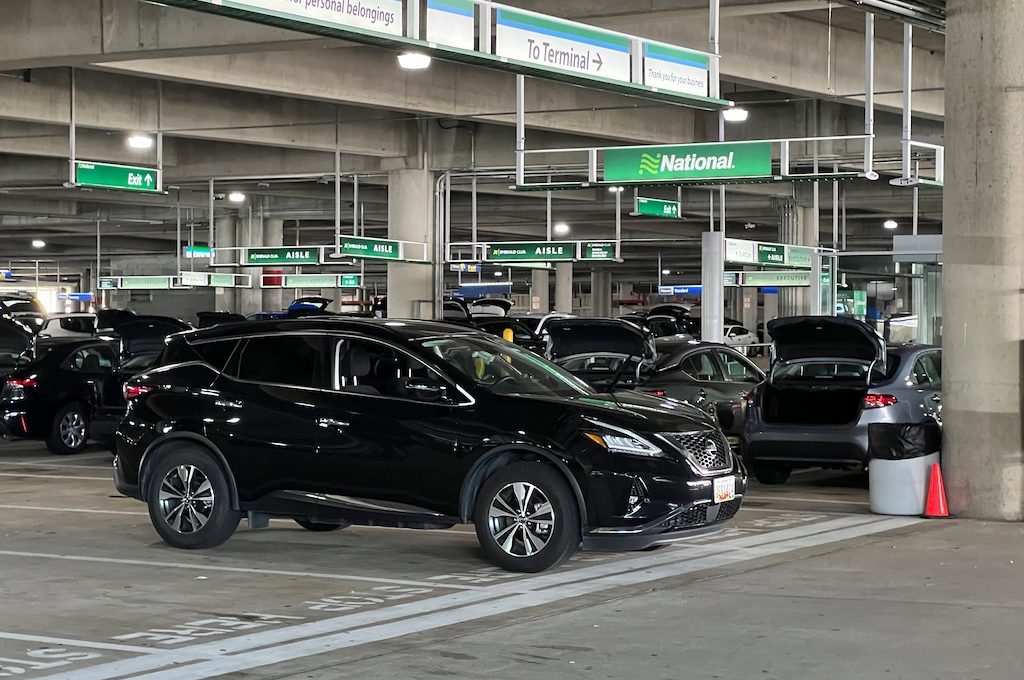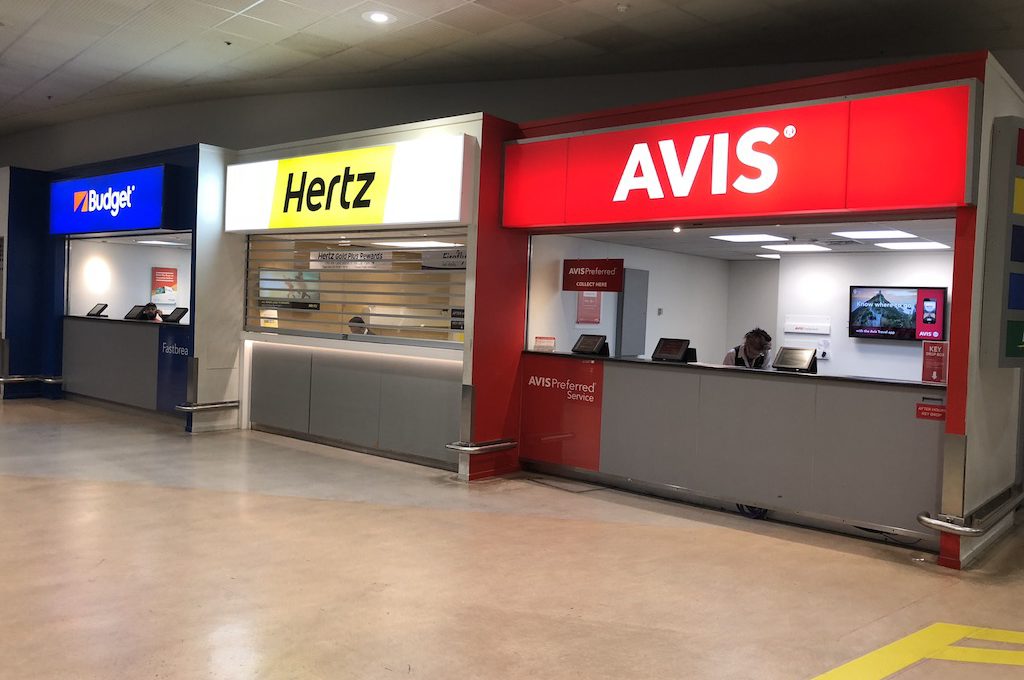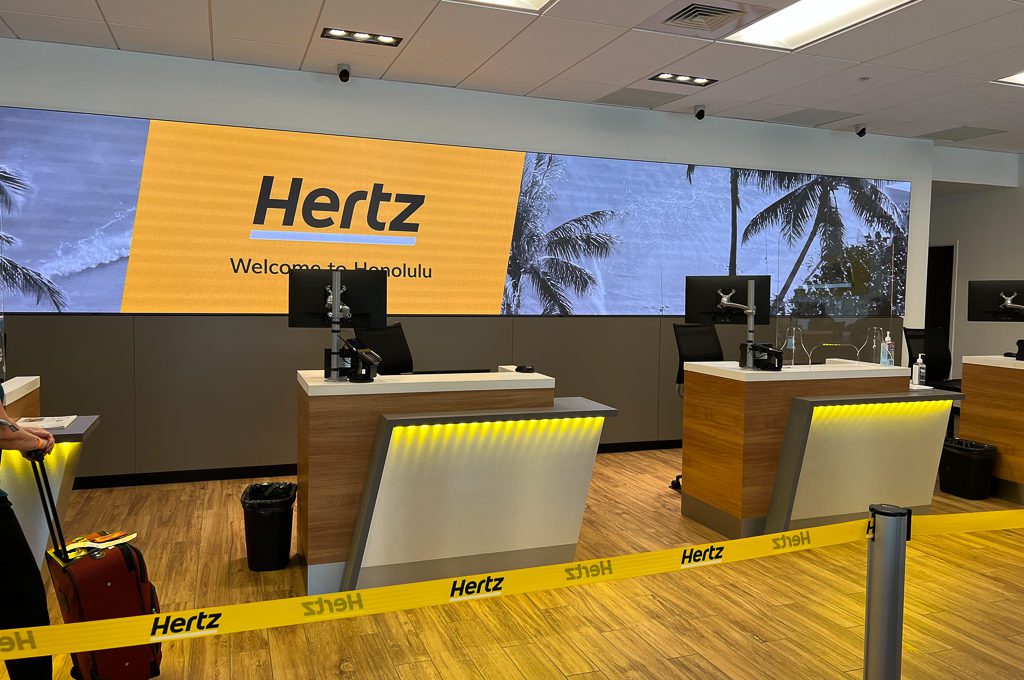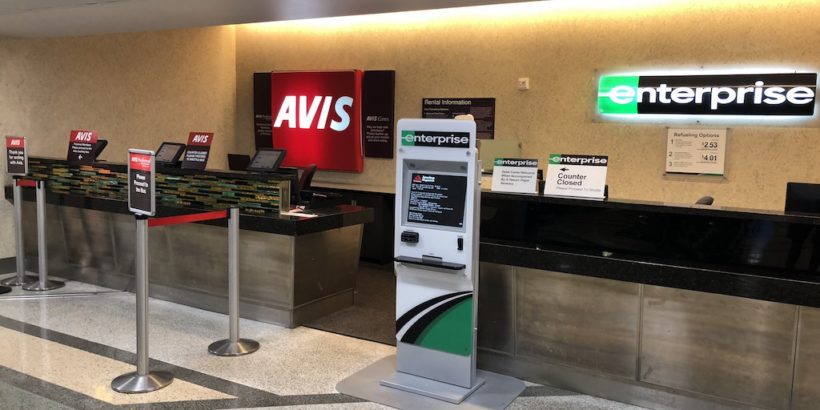There are several different ways that rental car companies can “get” travelers.
An entire roster of random fees, mileage limitations, cleaning fees, the list goes on….
But perhaps one of the most common ways that they make extra money from customers is when they offer them the option to pre-pay for gas.
But why would pre-paying for gas be such a bad thing for customers? And could it really be a rip off?
In this article, we will take an in-depth look at whether or not you should pre-pay for your gas when renting a car. We will talk about both the positives and negatives of doing so and give you some advice on how to go about the situation.
Table of Contents
Should you pre-pay for the gas for your rental car?
Pre-paying for your gas when renting a vehicle can cost you a lot of extra money because you typically are paying for a full tank and you may not get reimbursed for any unused fuel. This means that if you return a vehicle with half a tank of gas and you have pre-paid, you are basically donating half a tank of gas to the rental car company!
Keep reading to find out more!
Tip: Use the free app WalletFlo to help you travel the world for free by finding the best travel credit cards and promotions!

How gas refills usually work when you rent a vehicle
The standard rule of thumb is for you to return a rental vehicle with the same amount of gas that you picked it up with.
Usually you just have to fill it up “roughly” to where it was before.
So let’s say that you were given a rental car that was filled up to “F.” In that case, you could fill up your tank and probably still put close to 15 to 20 miles on the car before returning it and be just fine.
If you do not return the vehicle with the required level of gas, you will be charged a rate per gallon that is higher than the average local price. This could be 50 cents higher, one dollar higher, or in some cases, even more than that.
You will need to ask the rental car agency what this premium rate will be because the terms found on their websites are often a little bit vague. For example, Enterprise just mentions that the prices will be higher than local prices. They state:
This option allows the renter to pay Enterprise at the end of the rental for gas used but not replaced. Price per gallon will be higher than local fuel prices.
If you accidentally fill up the gas higher than the required level of gas you might be able to talk to the rental car company about getting a refund or credit but your mileage may vary.
Ideally, a rental car company will give you a vehicle with a full tank of gas but that does not always happen. So if you receive a vehicle with only half a tank in it then you should only be obligated to return it with half a tank left.
The amount of gas in your vehicle should be noted on your rental contract so this is something to pay attention to when you check out your vehicle. You definitely want to make sure that it matches the level on the fuel gauge. If it doesn’t, then you should talk to an agent about it immediately.
It may also be worth taking a photo of both the fuel gauge and the odometer so that you have evidence of how much gas you had when you picked up the car.
Related: Dropping a Rental Car off After Hours: Essential Tips When A Location is Closed

Why it’s not a good idea to pre-pay for your rental car gas
There are quite a few reasons why you may not want to pre-pay for your gas when renting a vehicle.
Let’s take a look.
You may get charged for a full tank regardless of how much fuel the car has when you turn it in
Whenever you agree to pre-paid gas, you are probably paying for a full tank of gas. The problem with this is that you don’t typically get reimbursed for any gas that you don’t use.
For example, let’s say that you return your vehicle with half a tank left. You would think that because you pre-paid for a full tank that you would get reimbursed for that half a tank left over. But that’s not how many rental car companies work.
Instead, you would get charged for the full tank that you pre-paid and the remaining half tank of petrol sitting in your vehicle is essentially a donation to the rental car company!
You can usually find this policy in the terms and conditions. For example, Enterprise states:
This [pre-pay] option allows the renter to pay for the tank of gas at the time of rental and return the tank empty. No refunds will be issued for unused gas.
The fuel rates you’re paying may be higher
Rental car companies should be able to disclose to you how much they will be charging you per gallon whenever you pre-pay for your gas. This rate may be much higher than what you could find somewhere else, although sometimes they advertise it as a little lower (but see below on taxes).
Something to keep in mind is that the gas stations near an airport often have higher prices so if you are looking for the best savings you probably want to compare prices with gas stations somewhere just on the outskirts of town but not too close to the airport.
Tip: use an app like GasBuddy to help you research gas prices.
Be sure to inquire if the relevant taxes are included in the fuel rate given by the rental car company because if taxes are excluded, the actual rate that you are paying could be even higher. This is definitely something to look out for when renting vehicles from airports because of the hefty airport taxes.
If something seems off about the prepaid price you could also look into the size of the fuel tank for that make and model. It’s possible that the rental car company could be basing the cost of a fill up on inaccurate data!
You’re okay with doing some math and planning
As mentioned above, if you fail to fill up the gas tank to the same level it was when you picked it up, you will be charged a premium rate for the gas needed to fill the tank to that level.
If you know what that rate is and you know roughly how far below the level you may be, you could do some simple math and realize that you could pay a lesser amount for the same convenience of avoiding the gas station.
Let’s look at an example to clarify.
Assume you were returning a vehicle that was 3/4 of the way full but you originally picked up the rental car with a full tank. Now let’s say that the rental car company is going to charge you $20 to fill up that last quarter tank.
Well, compared to the ~$60 you may have been paying for the prepaid fuel, that’s a savings of about $40.
Of course, this requires some advanced planning, accurate predictions, and maybe even a little bit of luck.
But the point is that you can get the same convenience of avoiding a last-minute gas station stop but at a fraction of the cost if you are willing to strategically deal with the “punitive” gas prices.
Lose out on fuel points
If you have a credit card that earns special bonus points on your gas station purchases then you are going to lose out on points because you can’t get that prepaid gas expense to code as gas.
Tip: Check out the free app WalletFlo so that you can optimize your credit card spend by seeing the best card to use! You can also track credits, annual fees, and get notifications when you’re eligible for the best cards!

Why it’s a good idea to pre-pay for your rental car gas
With all of those points above taken into consideration, sometimes it still might be worth it to you to pre-pay for your rental car gas. Here are some situations when that might apply.
You are in a time crunch
Sure, paying a premium for your gas is not ideal. But neither is missing your flight or stressing out at a gas station to fill up your vehicle at the last minute.
Some airports may not have a convenient gas station nearby and you never know if a gas station will have pumps that are functioning or not.
For some people, eliminating the stress of having to fill up a rental car is worth paying extra for.
You’re okay with doing some math and planning
This is similar to the point against doing prepaid gas but it is on the opposite side of the spectrum.
If you know that you will use up an entire tank of gas and you are pretty good at predicting your mileage on your travels then it could be worth it to pre-pay for your gas.
That’s because you might be able to time it so that you return the vehicle when you are very low on gas.
Some people say you should basically be stalling out when returning your vehicle in order to avoid unnecessary expenses but I think that’s taking the savings to an unnecessary extreme.
The way I see it is that if you return your vehicle with roughly an eighth of a tank left or under, your pre-paid fuel mission is accomplished.
Yes, you are still paying a little bit more for that small amount of gas but it’s also provided you with the luxury of not having to deal with the last minute gas station run.
Your company is footing the bill
Some people like to be very conscious about their spending even when their company is covering the bill.
But other times, you may have an understanding with your company that it’s worth spending extra for added conveniences.
Avoiding a last minute gas station stop that helps you travel more efficiently to the airport could definitely be a worthwhile expense for some employers. It also helps to simplify bookkeeping and reimbursements since you don’t have to deal with multiple receipts.
Final word
Most people will be paying extra for gas if they choose to go with the pre-pay option.
However, if you value the convenience of avoiding a last minute gas station stop, and especially if you think you can somewhat accurately predict your gas usage, then you may want to consider pre-paying for a fill-up or just paying for the premium gas rates.
If you predict you will be close to empty when returning a vehicle, prepaid can make a lot of sense. But if you predict you will be close to full (or the default level of fuel you picked up the car with) then just paying the premium fuel rates may be the way to go.
Of course, if the budget is not an issue and it’s purely about convenience for you then you can throw planning out the window and just hope that you don’t end up donating too much petrol to a rental car agency!
Daniel Gillaspia is the Founder of UponArriving.com and the credit card app, WalletFlo. He is a former attorney turned travel expert covering destinations along with TSA, airline, and hotel policies. Since 2014, his content has been featured in publications such as National Geographic, Smithsonian Magazine, and CNBC. Read my bio.

